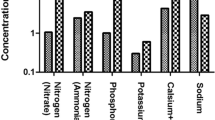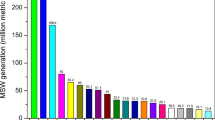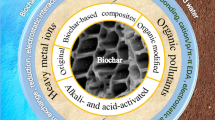Abstract
The aim of this study was to assess the suitability of vermicomposting for various types of organic waste based on earthworm growth and reproduction as well as nutrient content in final vermicompost. The study was also focused on the kinds of earthworms employed in the research, the countries where vermicomposting research was done, and fundamental operating conditions. To fulfill these aims, we developed research questions and used two reputable databases, namely, SCOPUS and Science Direct. We developed inclusion and exclusion criteria and the papers were taken from the years between 2012 and 2021. This study identified the majority of vermicomposting research related to waste management was conducted in Asian countries (55%) where India has the highest number of paper publications (35%). Research in the field of vermicomposting grew continuously from 2017. Furthermore, Eisenia fetida is a commonly used species for vermicomposting. The majority of vermicomposting experiments were conducted on animal waste, followed by sewage and industrial sludge. According to existing literature, almost all organic wastes can be used for vermicomposting. However, before being used as earthworm feed, these wastes should be pre-composted and should mix with secondary waste in proper proportions. Eighty percent of the papers suggested the importance of pre-composting or treatment before the actual vermicomposting starts.


Similar content being viewed by others
References
Adhikary S (2012) Vermicompost, the story of organic gold: a review. Agric Sci 03(07):905–917. https://doi.org/10.4236/as.2012.37110
Asian Development Bank [ADB] (2012) Nepal: Capacity building for waste management. Organic Composting (ADB TA 7597- NEP)
Aynehband A, Gorooei A, Moezzi AA (2017) Vermicompost: an eco-friendly technology for crop residue management in organic agriculture. Energy Procedia 141:667–671. https://doi.org/10.1016/j.egypro.2017.11.090
Behera KK, Alam A, Vats S, Sharma HP, Sharma V (2012) Organic farming history and techniques. In: Lichtfouse E (ed) Sustainable agriculture reviews. Springer, Berlin, pp 287–328
Belmeskine H, Ouameur WA, Dilmi N, Aouabed A (2020) The vermicomposting for agricultural valorization of sludge from Algerian wastewater treatment plant: impact on growth of snap bean Phaseolus vulgaris L. Heliyon 6(8):04679. https://doi.org/10.1016/j.heliyon.2020.e04679
Bhat SA, Singh J, Vig AP (2016) Effect on growth of earthworm and chemical parameters during vermicomposting of pressmud sludge mixed with cattle dung mixture. Procedia Environ Sci 35:425–434. https://doi.org/10.1016/j.proenv.2016.07.025
Bhat SA, Singh J, Vig A P (2015) Potential utilization of bagasse as feed material for earthworm Eisenia fetida and production of vermicompost. SpringerPlus 4(1) https://doi.org/10.1186/s40064-014-0780-y
Boruszko D (2020) Vermicomposting as an alternative method of sludge treatment. J Ecol Eng 21(2):22–28. https://doi.org/10.12911/22998993/116352
Busato JG, Lima LS, Aguiar NO, Canellas LP, Olivares FL (2012) Changes in labile phosphorus forms during maturation of vermicompost enriched with phosphorus-solubilizing and diazotrophic bacteria. Bioresour Technol 110:390–395. https://doi.org/10.1016/j.biortech.2012.01.126
Castillo-González E, Giraldi-Díaz MR, De Medina-Salas L, Sánchez-Castillo MP (2019) Pre-composting and vermicomposting of pineapple (Ananas comosus) and vegetable waste. Appl Sci 9(17). https://doi.org/10.3390/app9173564
Castillo-González E, De Medina-Salas L, Giraldi-Díaz MR, Sánchez-Noguez C(2021) Vermicomposting: a valorization alternative for corn cob waste. Appl Sci 11(12). https://doi.org/10.3390/app11125692
China Power (2016) Is China a global leader in research and development? | ChinaPower Project. In Center for Strategic Studies & International Studies. https://chinapower.csis.org/china-research-and-development-rnd/. Accessed 26 June 2022
Crescent T (2003) Vermicomposting. Development alternatives (DA) sustainable livelihoods [Internet], Available from. http://www.dainet.org/livelihoods/default.htm. Accessed 12 Nov 2012
Crutchik D, Rodríguez-Valdecantos G, Bustos G, Bravo J, González B, Pabón-Pereira C (2020) Vermiproductivity, maturation and microbiological changes derived from the use of liquid anaerobic digestate during the vermicomposting of market waste. Water Sci Technol 82(9):1781–1794. https://doi.org/10.2166/wst.2020.427
Das D, Abbhishek K, Banik P, Bhattacharya P (2021) A valorisation approach in recycling of organic wastes using low-grade rock minerals and microbial culture through vermicomposting. Environmental Challenges 5:100225. https://doi.org/10.1016/j.envc.2021.100225
De Medina-Salas L, Giraldi-Díaz MR, Castillo-González E, Morales-Mendoza LE (2020) Valorization of orange peel waste using precomposting and vermicomposting processes. Sustainability 12(18):6–8. https://doi.org/10.3390/su12187626
Debnath S, Chaudhuri PS (2020) Growth and reproduction of Perionyx excavatus (Perrier) during vermicomposting of different plant residues. Nat Environ Pollut Technol 19(5):1937–1943. https://doi.org/10.46488/NEPT.2020.v19i05.018
Dhiman V (2020) Organic farming for sustainable environment: review of existed policies and suggestions for improvement. Int J Res Rev 7:22–31
Domínguez J (2004) State-of-the-art and new perspectives on vermicomposting research. Earthworm Ecol 401–424. https://doi.org/10.1201/9781420039719.ch20
Dominguez and Edwards (2011) Biology and ecology of earthworm species used for vermicomposting. https://doi.org/10.1201/b10453
Edwards CA(2004) Earthworm ecology, 2nd ed. CRC ress: Boca Raton, FL, USA; ISBN 978–0–8493–1819–1
Ferronato N, Pinedo MLN, Torretta V (2020) Assessment of used baby diapers composting in Bolivia. Sustainability 12:1–16. https://doi.org/10.3390/su12125055
FiBL (2019) The world of organic agriculture. In The world of organic agriculture statistic and emerging trends. https://doi.org/10.4324/9781849775991
Ganguly RK, Chakraborty SK (2019) Assessment of qualitative enrichment of organic paper mill wastes through vermicomposting: humification factor and time of maturity. Heliyon 5(5):e01638. https://doi.org/10.1016/j.heliyon.2019.e01638
Ganguly RK, Chakraborty SK (2021) Valorisation of toxic paper mill waste through vermicomposting: an insight towards cleaner engineering through alleviation of wastes. Clean Eng Technol 2:100070. https://doi.org/10.1016/j.clet.2021.100070
Garczyńska M, Kostecka J, Paczka G, Hajduk E, Mazur-Paczka A, Butt KR (2020a) Properties of vermicomposts derived from Cameroon sheep dung. Appl Sci 10(15):1–14. https://doi.org/10.3390/app10155048
Garczyńska M, Paczka G, Podolak A, Mazur-Paczka A, Szura R, Butt KR, Kostecka J (2020b) Effects of Owinema bio-preparation on vermicomposting in earthworm ecological boxes. Appl Sci 10(2). https://doi.org/10.3390/app10020456
Ghorbani M, Sabour MR, Bidabadi M (2021) Vermicomposting smart closed reactor design and performance assessment by using sewage sludge. Waste Biomass Valorization 12(11):6177–6190. https://doi.org/10.1007/s12649-021-01426-w
Hidayati YA, Nurachma S, Badruzzaman DZ, Marlina ET, Harlia E (2021) Utilization of sheep dung and rice straw with indigenous microbial agent to optimize vermicompost production and quality. Biodiversitas 22(12):5445–5451. https://doi.org/10.13057/biodiv/d221227
Huang K, Xia H, Wu Y, Chen J, Cui G, Li F, Chen Y, Wu N (2018) Effects of earthworms on the fate of tetracycline and fluoroquinolone resistance genes of sewage sludge during vermicomposting. Bioresour Technol 259(88):32–39. https://doi.org/10.1016/j.biortech.2018.03.021
Hussain N, Abbasi T, Abbasi SA (2020) Evaluating the fertilizer and pesticidal value of vermicompost generated from a toxic and allelopathic weed ipomoea. J Saudi Soc Agric Sci 19(1):43–50. https://doi.org/10.1016/j.jssas.2018.05.005
Hussain N, Abbasi T, Abbasi SA (2017) Detoxification of parthenium (Parthenium hysterophorus) and its metamorphosis into an organic fertilizer and biopesticide. Bioresour Bioprocess 4(1). https://doi.org/10.1186/s40643-017-0156-6
ISWA (2020) Global assessment of municipal organic waste production and recycling. international solid waste association stationsplein 45 A4.004 3013AK rotterdam the Netherlands
Jjagwe J, Komakech AJ, Karungi J, Amann A, Wanyama J, Lederer J (2019) Assessment of a cattle manure vermicomposting system using material flow analysis: a case study from Uganda. Sustainability 11(19). https://doi.org/10.3390/su11195173
Kapila R, Verma G, Sen A, Nigam A (2021) Evaluation of microbiological quality of vermicompost prepared from different types of organic wastes using Eisenia fetida. Agric Sci Digest 41(3):445–449. https://doi.org/10.18805/ag.D-5275
Karmakar S, Brahmachari K, Gangopadhyay A, Choudhury SR (2012) Recycling of different available organic wastes through vermicomposting. E-J Chem 9(2):801–806. https://doi.org/10.1155/2012/945762
Katakula AAN, Handura B, Gawanab W, Itanna F, Mupambwa HA (2021) Optimized vermicomposting of a goat manure-vegetable food waste mixture for enhanced nutrient release. Sci Afr 12:e00727. https://doi.org/10.1016/j.sciaf.2021.e00727
Kaur T (2020) Vermicomposting: an effective option for recycling organic wastes. Organic Agriculture: 1–17.https://doi.org/10.5772/intechopen.91892
Kaza S, Yao L, Bhada-Tata P & Woerden, & Van F (2018) What a waste 2.0 a global snapshot of solid waste management to 2050. International bank for reconstruction and development. The world bank 1818 H Street NW, Washington, DC
Kujawska J, Wójcik-Oliveira K (2019) Effect of vermicomposting on the concentration of heavy metals in soil with drill cuttings. J Ecol Eng 20(1):152–157. https://doi.org/10.12911/22998993/93868
Kumar Badhwar V, Singh S, Singh B (2020) Biotransformation of paper mill sludge and tea waste with cow dung using vermicomposting. Bioresour Technol 318(August):124097. https://doi.org/10.1016/j.biortech.2020.124097
Lakhotia SC (2018) Why are Indian research journals not making a mark? - the enemy is within. Curr Sci 115(12):2187–2188
Lalander CH, Komakech AJ, Vinneras B (2015) Vermicompost as manure management strategy for urban small-holder animal farms-kampala case study. Waste Manag 39:96-103. https://doi.org/10.1016/j.wasman.2015.02.009
Lim PN, Wu TY, Clarke C, Nik Daud NN (2015) A potential bioconversion of empty fruit bunches into organic fertilizer using Eudrilus eugeniae. Int J Sci Environ Technol 12(8):2533–2544. https://doi.org/10.1007/s13762-014-0648-2
Liu X, Geng B, Zhu C, Li L, Francis F (2021) An improved vermicomposting system provides more efficient wastewater use of dairy farms using Eisenia fetida. Agron 11(5). https://doi.org/10.3390/agronomy11050833
Mago M, Yadav A, Gupta R, Garg VK (2021) Management of banana crop waste biomass using vermicomposting technology. Bioresour Technol 326:124742. https://doi.org/10.1016/j.biortech.2021.124742
Mahaly M, Senthilkumar AK, Arumugam S, Kaliyaperumal C, Karupannan N (2018) Vermicomposting of distillery sludge waste with tea leaf residues. Sustain Environ Res 28(5):223–227. https://doi.org/10.1016/j.serj.2018.02.002
Maity S, Bhattacharya S, Chaudhury S (2009) Metallothionein response in earthworms Lampito mauritii (Kinberg) exposed to fly ash. Chemosphere 77(3):319–324. https://doi.org/10.1016/j.chemosphere.2009.07.011
Majlessi M, Eslami A, Saleh HN, Mirshafieean S, Babaii S (2012) Vermicomposting of food waste: assessing the stability and maturity. J Environ Health Sci Eng 9(1):1–6
Manivannan S, Balamurugan M, Parthasarathi K, Gunasekaran G, Ranganathan LS (2009) Effect of vermicompost on soil fertility and crop productivity – beans (Phaseolus vulgaris). J Environ Biol 30:275–281
Mashur M, Bilad MR, Hunaepi H, Huda N, Roslan J (2021) Formulation of organic wastes as growth media for cultivation of earthworm nutrient-rich Eisenia foetida. Sustainability 13(18). https://doi.org/10.3390/su131810322
Matheson T (2022) Disposal is not free: fiscal instruments to internalize the environmental costs of solid waste. SSRN Electron J 0123456789. https://doi.org/10.2139/ssrn.3524304
Mohapatra D, Sahoo KK, Sannigrahi AK (2019) Impact of Eisenia fetida populations on bio-conversion of paper mill solid wastes. Int J Recycl Org Waste Agric 8(1):189–193. https://doi.org/10.1007/s40093-019-0288-0
Molavi F, Ehrampoush MH, Ebrahimi AA, Nabi-Meibodi M, Mokhtari M (2020) Evaluating changes in microbial population and earthworms weight during vermicomposting of cow manure containing co-trimoxazole. J Environ Health Sci Eng 18(2):403–412. https://doi.org/10.1007/s40201-019-00404-8
Mousavi SA, Sader SR, Farhadi F, Faraji M, Falahi F (2020) Vermicomposting of grass and newspaper waste mixed with cow dung using Eisenia fetida: physicochemical changes. Glob Nest J 22(1):8–14. https://doi.org/10.30955/gnj.003151
Mulla AI, Pathade GR (2020) Optimization of incubation period, pH and moisture content for vermicomposting of biomethanation sludge admixed with fruits and vegetable waste collected from Gultekadi Market Yard, Pune using Eudrilus eugeniae. Nat Environ Pollut Technol 19(2):873–880. https://doi.org/10.46488/NEPT.2020.V19I02.047
Mupambwa HA, Ravindran B, Mnkeni PNS (2016) Potential of effective micro-organisms and Eisenia fetida in enhancing vermi-degradation and nutrient release of fly ash incorporated into cow dung-paper waste mixture. Waste Manag 48:165–173. https://doi.org/10.1016/j.wasman.2015.10.001
Mupondi LT, Mnkeni PNS, Muchaonyerwa P, Mupambwa HA (2018) Vermicomposting manure-paper mixture with igneous rock phosphate enhances biodegradation, phosphorus bioavailability and reduces heavy metal concentrations. Heliyon 4(8):e00749. https://doi.org/10.1016/j.heliyon.2018.e00749
Musyoka SN, Liti DM, Ogello EO, Meulenbroek P, Waidbacher H (2020) Using earthworm, Eisenia fetida, to bio-convert agro-industrial wastes for aquaculture nutrition. BioResources 15(1):574–587. https://doi.org/10.15376/biores.15.1.574-587
Nannoni F, Rossi S, Protano G (2014) Soil properties and metal accumulation by earthworms in the Siena urban area (Italy). Appl Soil Ecol 77:9–17. https://doi.org/10.1016/j.apsoil.2014.01.004
Orozco FH, Cegarra J, Trujillo LM, Roig A (1996) Vermicomposting of coffee pulp using the earthworm Eisenia foetida: effects on C and N contents and the availability of nutrients. Biol Fertil Soils 22:162–166. https://doi.org/10.1007/BF00384449
Parthasarathi K, Balamurugan M, Prashija KV, Jayanthi L, Basha SA (2016) Potential of Perionyx excavatus (Perrier) in lignocellulosic solid waste management and quality vermifertilizer production for soil health. Int J Recycl Org Waste Agric 5(1):65–86. https://doi.org/10.1007/s40093-016-0118-6
Rameshwar HY, Argaw A (2016) Manurial value of khat waste vermicompost from Awday, Harar town, Ethiopia. Int J Recycl Org Waste Agric 5(2):105–111. https://doi.org/10.1007/s40093-016-0121-y
Raza ST, Tang JL, Ali Z, Yao Z, Bah H, Iqbal H, Ren X (2021) Ammonia volatilization and greenhouse gases emissions during vermicomposting with animal manures and biochar to enhance sustainability. Int J Environ Res Public Health 18(1):1–18. https://doi.org/10.3390/ijerph18010178
Raza ST, Bo Z, Ali Z, Liang TJ (2019) Better nutrient recovery and organic waste 51(3):1027–1034.
Rupani PF, Alkarkhi AFM, Shahadat M, Embrandiri A, El-Mesery HS, Wang H, Shao W (2019) Bio-optimization of chemical parameters and earthworm biomass for efficient vermicomposting of different palm oil mill waste mixtures. Int J Environ Res Public Health 16(12):1–10. https://doi.org/10.3390/ijerph16122092
Rupani PF, Embrandiri A, Ibrahim MH, Shahadat M, Hansen S, Mansor NNA (2017) Bioremediation of palm industry wastes using vermicomposting technology: its environmental application as green fertilizer. 3 Biotech 7(3):1–8. https://doi.org/10.1007/s13205-017-0770-1
Sahariah B, Goswami L, Kim KH, Bhattacharyya P, Bhattacharya SS (2015) Metal remediation and biodegradation potential of earthworm species on municipal solid waste: a parallel analysis between Metaphire posthuma and Eisenia fetida. Bioresour Technol 180:230–236. https://doi.org/10.1016/j.biortech.2014.12.062
Sánchez-Rosales R, Hernández-Rodríguez A, Ojeda-Barrios D, Robles-Hernández L, González-Franco AC, Parra-Quezad R (2017) Comparison of three systems of decomposition of agricultural residues for the production of organic fertilizers. Chil J Agric Res 77(3):287–292. https://doi.org/10.4067/S0718-58392017000300287
Shah RU, Abid M, Qayyum MF, Ullah R (2015) Dynamics of chemical changes through production of various composts/vermicompost such as farm manure and sugar industry wastes. Int J Recycl Org Waste Agric 4(1):39–51. https://doi.org/10.1007/s40093-015-0083-5
Sharma KD, Jain S (2020) Municipal solid waste generation, composition, and management: the global scenario. Soc Responsib J 16(6):917–948. https://doi.org/10.1108/SRJ-06-2019-0210
Singh WR, Kalamdhad AS (2016) Transformation of nutrients and heavy metals during vermicomposting of the invasive green weed Salvinia natans using Eisenia fetida. Int J Recycl Org Waste Agric 5(3):205–220. https://doi.org/10.1007/s40093-016-0129-3
Singh CK, Kumar A (2017) Vermicomposting of terrestrial weeds Lantana camara L. and Parthenium hysterophorus L. Agric Solid Waste 28:63–69
Sinha RK, Agarwal S, Chauhan K, Valani D (2010) The wonders of earthworms and its vermicompost in farm production: Charles Darwin’s friends of farmers, with potential to replace destructive chemical fertilizers from agriculture. J Agric Sci 1:76–94. https://doi.org/10.4236/as.2010.12011
Sohal B, Ahmad Bhat S, Vig AP (2021) Vermiremediation and comparative exploration of physicochemical, growth parameters, nutrients and heavy metals content of biomedical waste ash via ecosystem engineers Eisenia fetida. Ecotoxicol Environ Saf 227:112891. https://doi.org/10.1016/j.ecoenv.2021.112891
Sosnecka A, Kacprzak M, Rorat A (2016) Vermicomposting as an alternative way of biodegradable waste management for small municipalities. J Ecol Eng 17(3):91–96. https://doi.org/10.12911/22998993/63310
Światek J, Spitzer T, Grobelak A, Kacprzak M (2019) Effects of biochar addition on vermicomposting of food industry sewage sludge. J Ecol Eng 20(3):36–45. https://doi.org/10.12911/22998993/97242
Wang Y, Zhang QQ, He K, Zhang Q, Chai L (2013) Sulfate-nitrate-ammonium aerosols over China: response to 2000–2015 emission changes of sulfur dioxide, nitrogen oxides, and ammonia. Atomspheric Chem Phys 13(5):2635–2652. https://doi.org/10.5194/acp-13-2635-2013
Wang Y, Han W, Wang X, Chen H, Zhu F, Wang X & Lei C (2017) Speciation of heavy metals and bacteria in cow dung after vermicomposting by the earthworm, Eisenia fetida. Bioresour Technol 245:411–418. https://doi.org/10.1016/j.biortech.2017.08.118
Wani KA, Mamta, Rao RJ (2013) Bioconversion of garden waste, kitchen waste and cow dung into value-added products using earthworm Eisenia fetida. Saudi J Biol Sci 20(2):149–154. https://doi.org/10.1016/j.sjbs.2013.01.001
Wiethan MMS, Bortolin GS, Pinto RS, Sari BG , da SILVA ACF (2018) Development and multiplication of Eisinea andrei in the manure of cattle subjected to high Trichoderma doses. Bioscience 34(6):1–10. https://doi.org/10.14393/BJ-v34n6a2018-40009
Wu Z, Yin B, Song X, Qiu J, Cao L, Zhao Q (2019) Effects of salinity on earthworms and the product during vermicomposting of kitchen wastes. Int J Environ Res Public Health 16(23):1–12. https://doi.org/10.3390/ijerph16234737
Yuvaraj A, Karmegam N, Tripathi S, Kannan S, Thangaraj R (2020) Environment-friendly management of textile mill wastewater sludge using epigeic earthworms: bioaccumulation of heavy metals and metallothionein production. J Environ Manage 254:109813. https://doi.org/10.1016/j.jenvman.2019.109813
Zhang H, Li J, Zhang Y, Huang K (2020) Quality of vermicompost and microbial community diversity affected by the contrasting temperature during vermicomposting of dewatered sludge. Int J Environ Res Public Health 17(5). https://doi.org/10.3390/ijerph17051748
Zhang L, Sun X (2016) Influence of bulking agents on physical, chemical, and microbiological properties during the two-stage composting of green waste. Waste Manage 48:115–126. https://doi.org/10.1016/j.wasman.2015.11.032
Acknowledgements
This research was supported by Graduate School, Prince of Songkla University, Thailand, for which the authors highly acknowledge. Authors are grateful to Prince of Songkla University for necessary library facilities.
Funding
Financial support was received from Graduate School, Prince of Songkla University, Thailand.
Author information
Authors and Affiliations
Contributions
All authors had contributed to the study. The contributions were as follows:
Kishor Kumar Maharjan: conceptualization, methodology, writing—original draft, data curation, formal analysis. Prakrit Noppradit: review and editing, supervision. Kuaanan Techato: review and editing, supervision. All authors read and approved the final manuscript.
Corresponding author
Ethics declarations
Ethical approval
Not applicable.
Consent to participate
Not applicable.
Competing interests
The authors declare no competing interests.
Additional information
Publisher's note
Springer Nature remains neutral with regard to jurisdictional claims in published maps and institutional affiliations.
Rights and permissions
Springer Nature or its licensor (e.g. a society or other partner) holds exclusive rights to this article under a publishing agreement with the author(s) or other rightsholder(s); author self-archiving of the accepted manuscript version of this article is solely governed by the terms of such publishing agreement and applicable law.
About this article
Cite this article
Maharjan, K.K., Noppradit, P. & Techato, K. Suitability of vermicomposting for different varieties of organic waste: a systematic literature review (2012–2021). Org. Agr. 12, 581–602 (2022). https://doi.org/10.1007/s13165-022-00413-2
Received:
Accepted:
Published:
Issue Date:
DOI: https://doi.org/10.1007/s13165-022-00413-2




